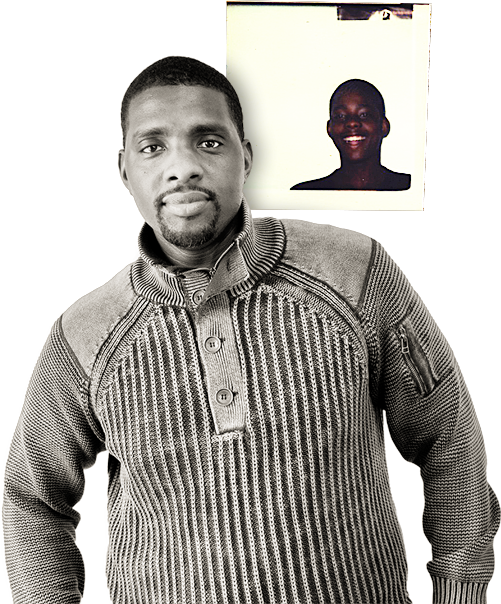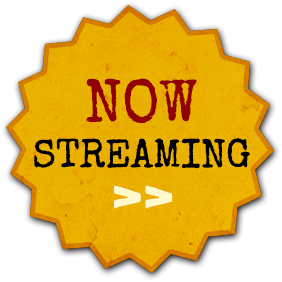
See additional footage of Antwan
See List of Dreamers
Antwan Green
So many memories. I loved the program. It changed my life. I wish that everybody could experience it, really. It’s one of those things that’s hard to put in words. It was a great experience, and even though I haven't spoke to people in a very long time, this part of my life is special. In those crucial years, we really had somebody looking out for us. And with the promise of going to college, it was great. And they didn't just say that, you know? They were involved with us day after day after day. All the way through.
At Kramer, we had classes with the general population, but Mrs. Rumbarger and Mr. Bumbaugh kind of kept us together, so we were doing a lot of activities together as the Dreamers. We felt like we were a little different from the rest. I mean, because we had each other. We were blessed. It was a lot of extra stuff Mr. Bumbaugh and Mrs. Rumbarger did. Like, studying with us—extra teaching, behind-the-scene, a lot of extra hours helping us out and making sure we got it. It taught me how to study, to research. And boarding school taught me how to take advantage of the time.
I was one of the first ones that went to MVA, Mt. Vernon Academy. So, we went to an environment where academics was everything, and everybody strived hard to make the good grades. Coming from where I came from, it wasn't important, so I didn't take it that serious. But I remember we were sitting in an awards ceremony there for people getting honor roll. And one of the other students, he was a kid from the area, looked to—it was me, D'Angelo, and a couple of other Dreamers that were there, and said, “Yeah, you guys'll never be up there.” I was, like, “What?” Okay, I’ll play. I turned it on from right there.
The very next semester, I dug in. I went hard. Straight As. I made As in every subject, every class. And he just couldn't believe it. So, the next award ceremony, I was up there. Like, In your face. I had to show him.
Everybody was proud. And actually, when we had a ceremony for the Dreamers, I won all these different plaques. I think I had Outstanding Achievement, Honor Roll, and Most Improved. I mean, I was studying non-stop. I gave up basketball. No more playing. Extra credit. I was a completely different student. And that was all because the environment was different. So, that's where I got a lot of good.
It was an experience in Ohio, it was different. I went 10th and 11th, and then I think it was Christmas break in 11th, that I didn’t go back. I don’t know, it was a weird time for my family at home, and I had a situation up there about dating. It was like a hay dance or something. It was a young lady there, she was a cheerleader. She was a white cheerleader, and I was African American, and she asked me to go to the ball. I said, Okay. I was really popular. She was really popular. But I mean it was a big stare, big talk. I just felt like it was a lot of tension. Because that town didn’t have many African-Americans—it was only us from that school in the entire town. It was just so much talk, and I wasn’t used to that. I was young—and she asked me. But they made a stink about it. It was just getting really hostile towards me. And it was beyond the students—it was administrators. I remember the dean had a conversation with me, like, “I mean, is it really worth going to the dance with her?” He didn’t tell me not to, he just was like, “Is it really worth going—really?” That was one of the things that made me not so impressed.
After that, I didn’t go back. The thought of that 12th grade year, was like, This is too much. I’m done with this. At that time, it seemed like years were forever. Like now, you want them to slow down. So that was really the reason why I didn’t go back. And my mom and my little sister, she’s two-and-a-half years younger than me, they were having hard times here, with my mom and her husband. That was another reason. When I talked to my sister, she’s crying, it was just, it was so much going on. I felt like I had too much responsibility to my family. And, like, I couldn't complain to them about a problem I'm having at the school. They couldn't really relate. And—aachh—it felt like it was just all on my shoulders.
I guess, if Mr. Bumbaugh would have been there, it would have been different. Or if somebody, you know, on a one-on-one basis, would have been able to talk me through it, I think I would have been okay. But it got a little crazy for a kid by theirself. But, hey: Whaddya gonna do? So, I decided to come back and try to work or do whatever, help out with the family. I just thought that, Okay, I got the tools. I can go anywhere and do what I want to do for a while. I felt like the college part of it was already taken care of, so I didn't have to worry about that, I can make it happen.
When I left Mt. Vernon, I think my Dreamer days were kind of over. I just had to separate. I had to leave because I knew they weren’t going to let me. Like, Mr. Bumbaugh, he’s persistent. I may have talked to him once or twice, but I kind of didn’t want to. I don't know, I was not really embarrassed, because I made the decision myself, but I just knew that they—I didn't want to face them when I knew I let them down. And I let them down not because I couldn't do it. They wanted me to come to Eastern, where they had the program, but I was, like, Ah, it's going to be a whole lot of talk why I'm not away at school when I should be there. And while we were gone a lot of changes happened. Rafiq had gotten murdered, we had lost a guy. People were growing up now. I don’t know. But that's what it was. You just think you know everything when you're that young. I guess I was not trying to be a part of it all. So, I chose to go to Wilson. I broke all ties, and then, it just got lost.
I got in a little bit of trouble that 11th grade summer. I caught a charge. They put it on a juvenile charge, so that it’s not on my record now as an adult. I went to the 12th-grade year, and got distracted, and just didn't finish up the 12th-grade year. After that, I got in a little bit more trouble. I ended up winning that case, beating that case. But the judge made a statement like, “You were in trouble a couple years ago, and then you’re back in here. One more time, whether you did it or not, come through this courtroom, I’m giving you max time.”
When they tell you, We're going to take this portion of your life—I mean, is it really worth it? Nah, not really. I'm not a fool. I took that as a blessing, and I straightened up. I got past that. “Okay, Your Honor, you're right. You're absolutely right.” So, then I got my job. And I really worked this time. I worked for Coca-Cola. I worked there for five years or so. And at that time, I just evolved. Started in the warehouse, moved up. Got a CDL, a commercial driver license, so I was doing a route. And I got another opportunity with the trash company, I got involved with that. Been doing that for 12 years, but I only worked for the company for, like, five. Then I started my own company. I was still working for the company—running two jobs. And then I went on my own in '04 or '05. And from that time on, I've been working for myself.
I think the luxuries and what I’ve been able to afford and all of that kind of averaged out. But the only thing that I didn’t accomplish is becoming that attorney that I wanted to be. And—now that I’m an adult, I can look back—they put a lot of things in place for it to happen. They gave me a mentor, Tony Jones. He was an attorney. But just me being on my own—well, I had the support from the Dreamers program and the foundation—but I was my only support on this side to push me through. Like if a parent or somebody else was in my head like: Just do it, just do it. With my determination, I would have been off.
I didn’t finish the program, but no regrets, because I learned a lot. I wouldn't change anything—well, I would. But it had a great impact. It had a great impact. The way I am today is because of those experiences. I think that I wouldn't be as well-rounded without this program. And I think that the program itself helped me to succeed even without the college part of it. Even without completing the program, I got enough tools, at the right time in my life, to survive in the world. As a productive member of the world. Not just, you know, getting by day to day, but really being a part of it. So absolutely, I owe it all to the program and my experience from it.
Over the years, I wanted to know what happened to Mr. Bainum. He was so nice. And his kids too. I would love it if you could reach out to Mr. Bainum—I just want to thank him. His daughter and son, too. Or if there’s anything he needs. Whatever he needs, if I can do anything. If I can just speak to him just to let him know I appreciate everything he did. I just need him to know I appreciate it. Everything that he did. And even though I didn’t take full advantage, that I still turned out just fine because of the foundation that they laid.



